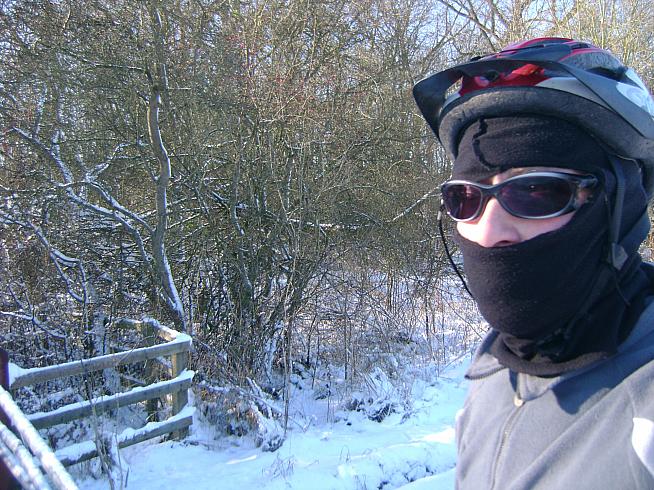"Will you commit yourself to this program?"
If, like me, you're a big fan of the Jason Bourne series, you may recognise this question. It was posed by Dr Albert Hirsch (Albert Finney) to David Webb (Matt Damon) in the third film of the franchise, 'The Bourne Ultimatum'.
Note that what Hirsch did not say was, "Are you motivated to become a CIA Assassin for the deniable Treadstone project?"
As a cycling coach, the subtle difference between commitment and motivation fascinates me, but it is a topic that I find is rarely discussed. Most articles that I have found focus on motivation - i.e. a mental phenomenon - and its benefits for physical processes such as cycling, rather than trying to differentiate between commitment and motivation.
Personally, I think that motivation is a subset of commitment, and that both are essential for a successful outcome to a cycling goal; so let's explore that statement a little further.
What is commitment?
Most definitions of commitment explain it in terms of being dedicated to something, often a person or a cause. Sage advice will always be to think carefully about making a commitment, as doing so will often obligate you in some manner!
Marriage, mortgages, having kids, buying your first car or turning vegan are easily recognised commitments in modern life.
Motivation, on the other hand, is usually defined in expressions that involve enthusiasm, willingness, need, or reason to do something - or, in the reverse sense, to avoid something. In essence motivation is, for me, the 'something' that causes me to want to do 'it', or avoid 'it' - whatever 'it' may be.
Continuing my examples above, it's hopefully clear why you can't just be motivated to get married; if you expect it to last, you need to be committed too!
Without commitment, at the first sign of lovers' tiffs, financial struggles, job challenges or perhaps even the patter of little feet, that motivation is likely to dwindle and the divorce lawyers' coffers are going to start to fill!
Instead, you have to focus on why you wanted (committed) to get married in the first place. (Editor's note: Andy is not a marriage counsellor - he's too busy riding his bike!)

Motivation is a subset of commitment
I certainly think this is the case. We all know from our experience as human beings, foremost, and secondly as cyclists, that motivation comes and goes. Who hasn't taken the easy option on a cold, wet, windy, winter's day to 'do it tomorrow'?
I daresay that those delaying tactics are far less prevalent on a balmy summer's evening or in a location that inspires you. My point is that your level of motivation can be very high or have completely evaporated, depending on the circumstances that you are in.
As part of my coaching strategy, I try to convey to clients that it's perfectly OK for motivation to ebb and flow. In fact, it's the recognition of the fact that you can't be motivated for 100% of the time that, perversely, actually increases your overall motivation over the duration of a training plan.
If you know that 'down days' are inevitable, then a simple coping strategy when they occur is to focus on the overall commitment. Rather than thinking about how bad you feel, or how horrible the weather is, or how warm your bed is, focus instead on the commitment that you have made.
Applying the knowledge
Firstly, let's be clear that I am not saying that we can make do without motivation. It is clearly an essential ingredient that makes us want to ride; whether that takes place indoors or outdoors is completely irrelevant. It is my experience that a motivated rider is more likely to want to train with persistence - and often at intensity - towards a goal than his/her more lackadaisical counterpart.
I freely admit that it's a lot easier to say than do - i.e. focus on the commitment when your motivation is low - but it can be learned by practice. A good coach can help the client by ensuring that each session is clearly defined. Part of that definition is, of course, based on numbers such as hours, distance, heart rate (HR), watts or elevation; but, more important I believe, is an explanation of 'why' the session is there. The coach's responsibility is to ensure that the rider knows (and fully understands) how the session is going to help them to become Fitter, Faster or ride Further - something that I term the 3Fs.
Examples
From my own experience as a rider, there are a couple of examples that I would like to share.
1) The 'Ramp Test'
Sportive.com readers that have performed a 'Ramp Test' will know that it is the equivalent of Jason Bourne's eventual commitment to become part of Treadstone. Well, I am stretching the analogy a little far of course, but motivation alone will not get you to the end of one of those sessions.
You have to be 100% committed to a ramp test session for it to produce accurate information, regarding your HR and power outputs at your VO2max and anaerobic threshold levels. Accurate determination of these values is something that coaches such as I crave, as it helps us to understand all of a client's functional zones. The consequence of that knowledge is being able to prescribe very specific sessions that are completely personalised to the client.
Riding at a steady cadence, at ever increasing resistance levels, through your threshold and on to ultimate collapse is a tough experience. For me, and others with whom I have discussed it, that moment of collapse comes out of nowhere. Yes, you know you are working hard, very hard - but then it's gone without conscious thought of 'shall I stop'.
If you find that you are thinking about stopping during the course of a ramp test, then I'd suggest that you are powered by motivation, rather than true commitment to get your absolute results. (On the other hand, if you're not thinking about stopping, you aren't going hard enough! - Ed)
2) 5,000 miles
Until last year I'd never ridden more than 4,200 miles in any given calendar year. Until about September, recording 5,000+ miles was always on the cards but I had a couple of lower mileage weeks that made me think that I'd fall short of the target.
Then it started to rain regularly throughout autumn and those Sportive.com readers in the UK will know that it has been particularly wet. Motivation got me out to keep some miles racking up and by 20th December I was tantalisingly close - within 180 miles of my target.
I was so close to my target that motivation was no longer my main driver. I told myself, "I will see 5000+ miles on my tracker for 2019, come what may!" I was fully committed to getting there, as the opportunity to hit 5,000 miles may not come again for several years.

My commitment meant that it could rain, sleet, hail or snow - I didn't care what happened with the weather. I'd dress up appropriately, choose to ride my MTB if needed, switch the oven to automatic and stash a little bit of 'medicinal spirit' in a hip flask - whatever it took!
And make it I did - finally crossing the magic 5,000 mile threshold on my last ride of the year on 31st December.
At this time of year, as we look ahead and plan our goals, try to focus on your commitments for 2020 rather than your daily motivational level. If you've not set your goals already, then that's fine, just get out when you can and enjoy whatever riding you do.
Happy New Year from Sportive Cycle Coaching.
And finally:
If you want help with your fitness and motivation towards your cycling commitments in 2020, then please contact the author, Andy Tomkins, who is a professional cycling coach. See www.sportivecyclecoaching.co.uk or email Andy on [email protected].
0 Comments





